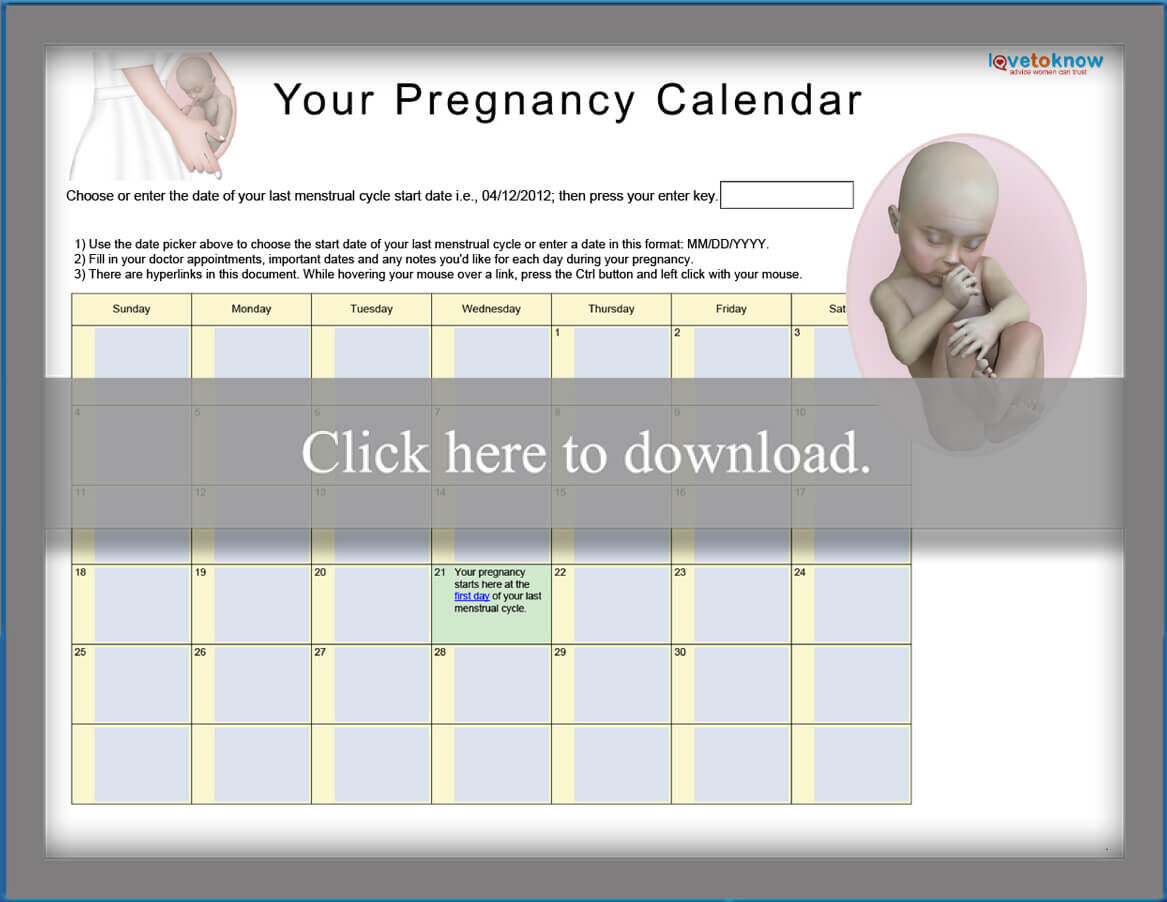
You're five weeks pregnant, and it has now been three weeks since your baby was conceived. Once you enter into fifth week of your pregnancy, you will have missed your period. Things are far enough along now that you can trust the results you receive on your home pregnancy test. Your body is changing rapidly, and you may be starting to notice a few early pregnancy symptoms.
Your Baby's Development
During week five of your pregnancy, your baby is further maturing. The chronic villa, meaning the cells along the wall of the uterus that form the placenta, will fully develop. A yolk sac will have developed around the embryo, and it will help feed the baby for the next few weeks as the placenta is developing.
According to the National Institute of Health, the baby's brain, spinal column, gastrointestinal tract, and heart are beginning to develop this week. The embryo is about the size of a sesame seed now and consists of three layers:
- The inner layer, or endoderm, will develop into the baby's lungs, liver, and digestive system.
- The middle layer, or mesoderm, will become the baby's bones, kidneys, sex organs, and heart.
- The outer layer, or ectoderm, will become the baby's skin, hair, eyes, and nervous system.

Your Changing Body
By now, you will have missed your period. Your body is producing enough human chorionic gonadotropin (hCG) to get a positive result on a home pregnancy test. As a precautionary measure, use your first urine of the morning to take the test, as it normally has higher levels of hCG than the urine during the remainder of the day.
At this stage of your pregnancy, you may not notice much difference in your weight or size; however, you are probably beginning to experience a few early pregnancy symptoms:
- The most significant physical change may be that your breasts are larger and may be tender. You will want to wear a good support bra or jogging bra day and night to relieve the soreness.
- You may feel more tired than normal as your body works overtime to grow your baby. Adding a short nap to your daily schedule and going to bed earlier will help with the fatigue.
- You may experience mood swings as your changing hormones play havoc with your emotions. The extra rest will help with these as well.
- Your hormones may be affecting your bladder as well. Many women find that they need to urinate more frequently.
- You may or may not be experiencing nausea, although this symptom is more common a little later in pregnancy.
More to Know About Pregnancy Week Five of Your Pregnancy
Now that you know you're pregnant, there are a few things to figure out. These include telling Dad your good news and taking steps to ensure the health of you and your little one.
Don't Forget Dad
This is a good time to let your significant other know that he's going to be a father. Take the time to make the moment special; after all, without him, there would be no baby. Consider some of the following ways to clue him in on the big event:
- Take the pregnancy test as a couple, so he knows the results at the same time you do.
- Purchase a copy of What to Expect When You're Expecting by Arlene Eisenberg, Heidi E. Murkoff, and Sandee E. Hathaway, B.S.N., wrap it up, and send it to him at work.
- Clear out a portion of his dresser drawer and fill it with disposable diapers.
- Take him out for a nice dinner and tell him over champagne glasses filled with milk.
- Send a picture of the pregnancy kit stick, showing the positive results to him via email.
Your First Doctor Visit
If you have not seen an OB health professional yet, week five is a good time to schedule an appointment. The OB health professional will want to confirm you are pregnant and review your medical and family history. This will also include medical questions about your husband and his family. For example, the OB health professional will want to know if twins or genetic defects run in the families. Make sure to take along a list of any medications you may be taking, the date of your last period, the average number of days in your menstrual cycle, and a list of any questions you may want answered. Do not trust yourself to remember your questions because the visit may prove hectic.
The OB health professional may also want to do the following:
- Run blood tests
- Write a prescription for prenatal vitamins
- Schedule an appointment with the office manager to discuss financial arrangements
- Schedule regular prenatal visits throughout the remainder of your pregnancy
- Do a pelvic exam and take a pap smear and other tests
- Check blood pressure and weight
- Take a urine sample to check for proteins and sugar, which may indicate diabetes and kidney changes
- Check the size and position of the fetus and uterus
While you should call your OB as soon as you suspect that you are pregnant, some health care providers may not schedule your first appointment for another week or two. You may not have your first prenatal visit at 5 weeks, but that's okay, especially if you are in good health or not having any problems. However, be sure to tell your OB if you are uncomfortable waiting for an appointment. If you experience severe bleeding and cramping, be sure to call your doctor immediately. f
Your Diet
If you've been planning this pregnancy, you've probably already made some changes to your diet. If not, it's important that you eat a nutritious, balanced diet and avoid the following:
- Food additives, such as monosodium glutamate (MSG)
- Unpasteurized foods, which may include soft cheeses and some milk products
- Shellfish, swordfish, tilefish, shark, king mackerel, grouper, mahi mahi, amberjack, raw sushi, sashimi, and self-caught freshwater fish
- Herbal teas that include slippery elm, ginseng, cohash and other herbs that may stimulate contractions
- Alcoholic beverages and foods

If you need help downloading the pregnancy calendar, check out these helpful tips.
Looking Forward
This is an exciting time in your life and the changes, both in your baby and your body, will occur rapidly over the next few weeks. Relax and remember to embrace the uncertainty.
See « Pregnancy Week 4 See Pregnancy Week 6 »